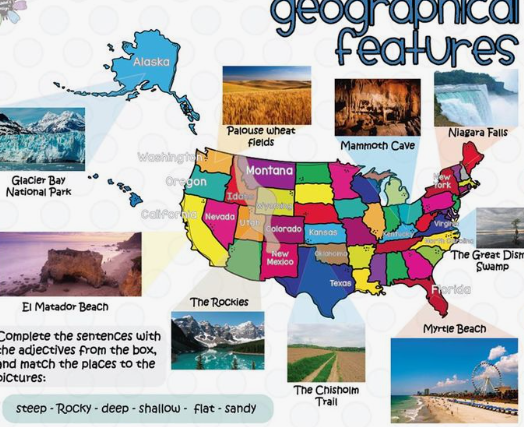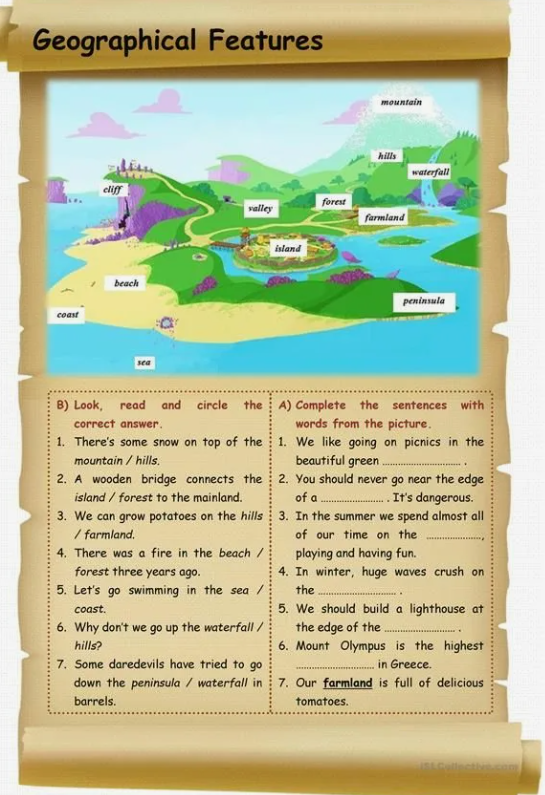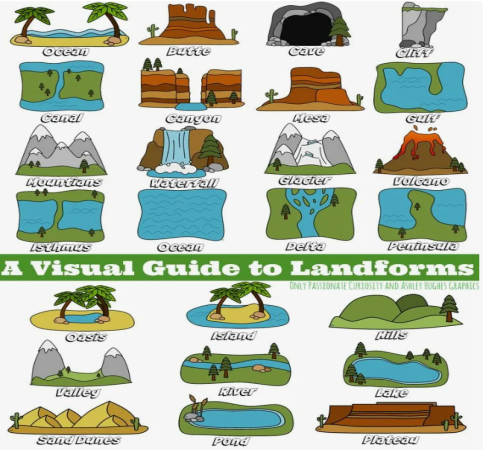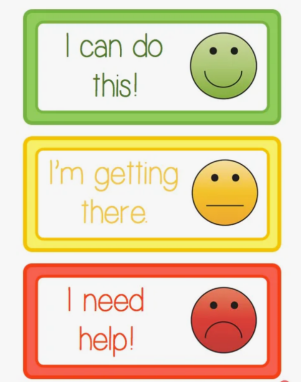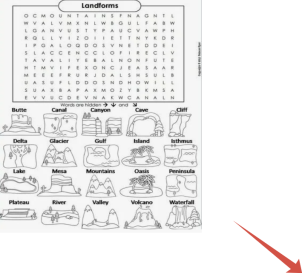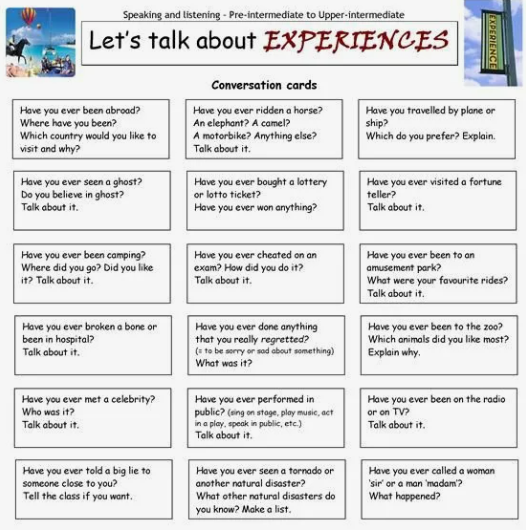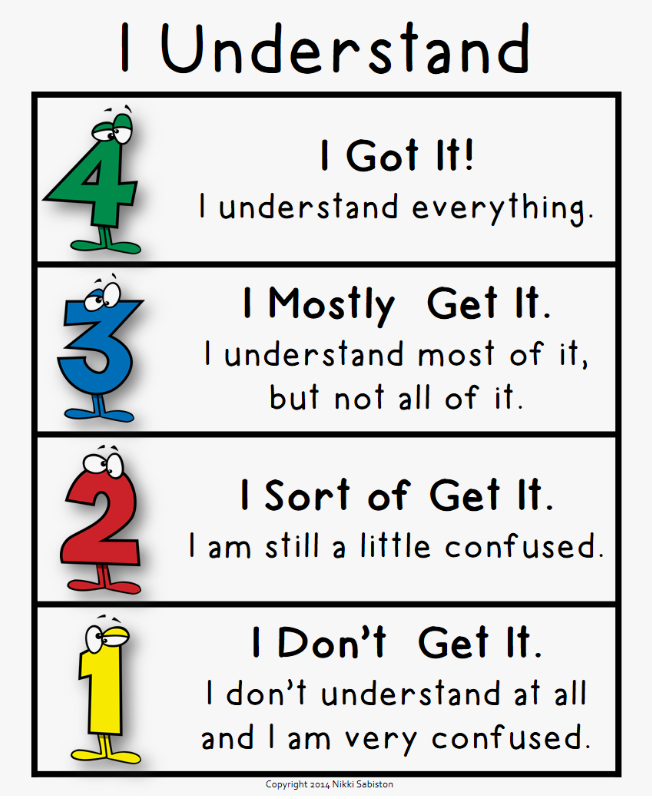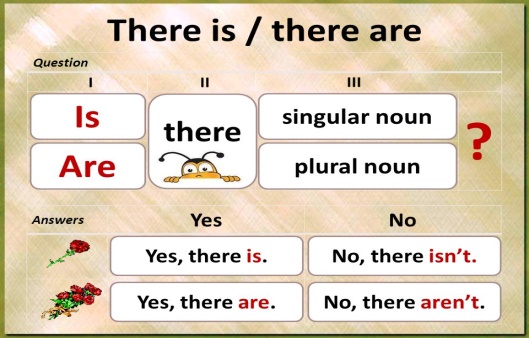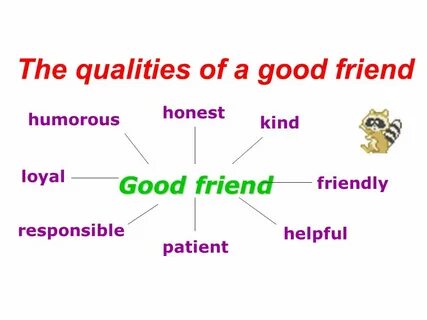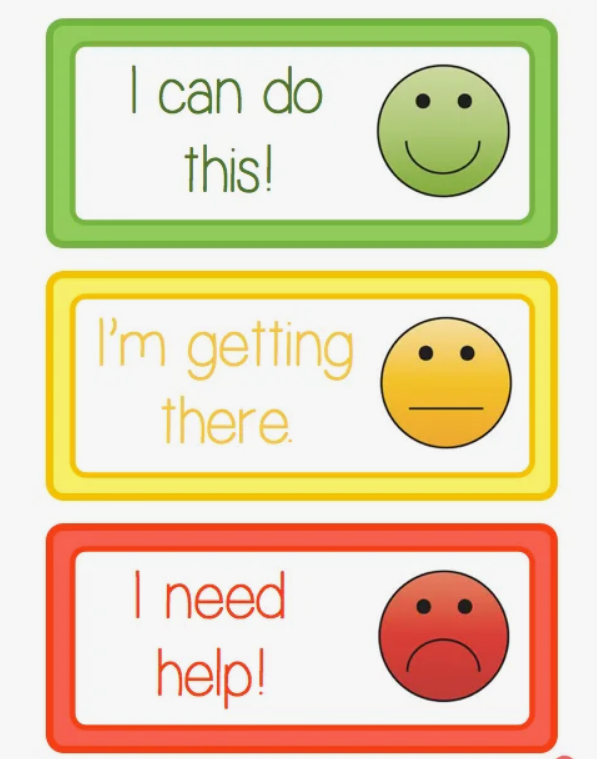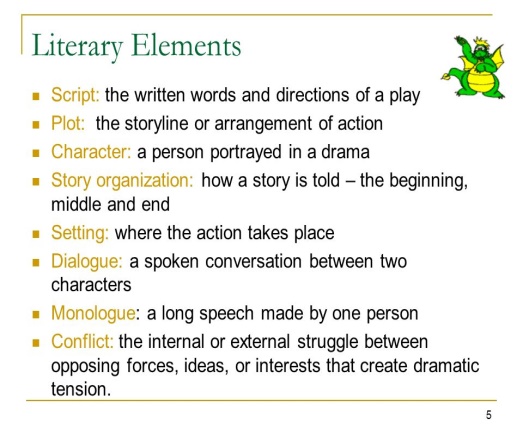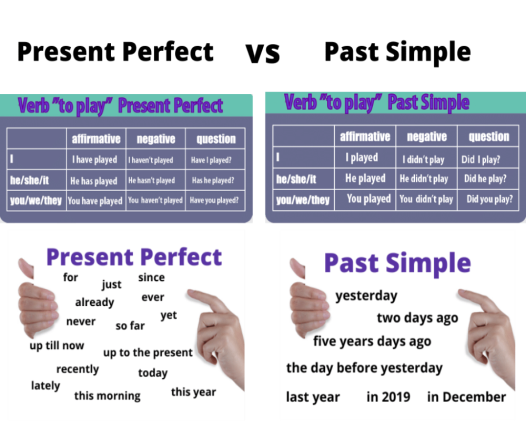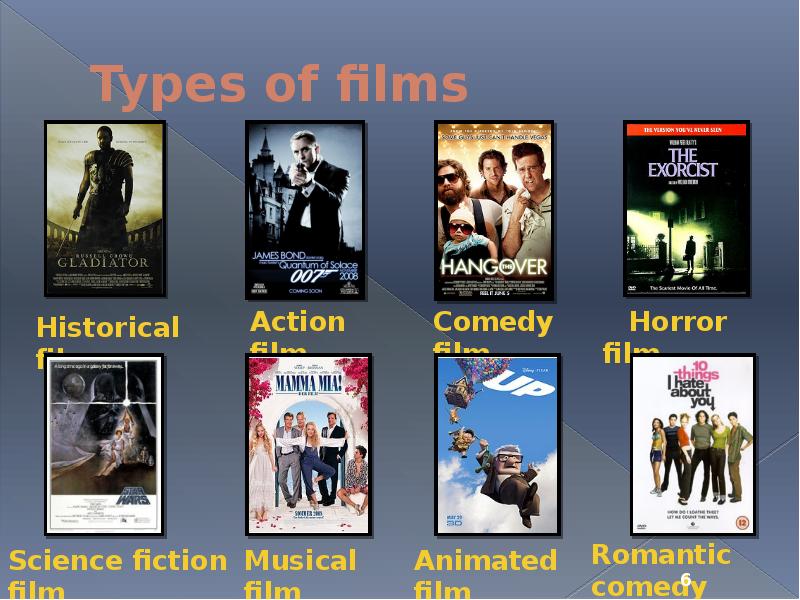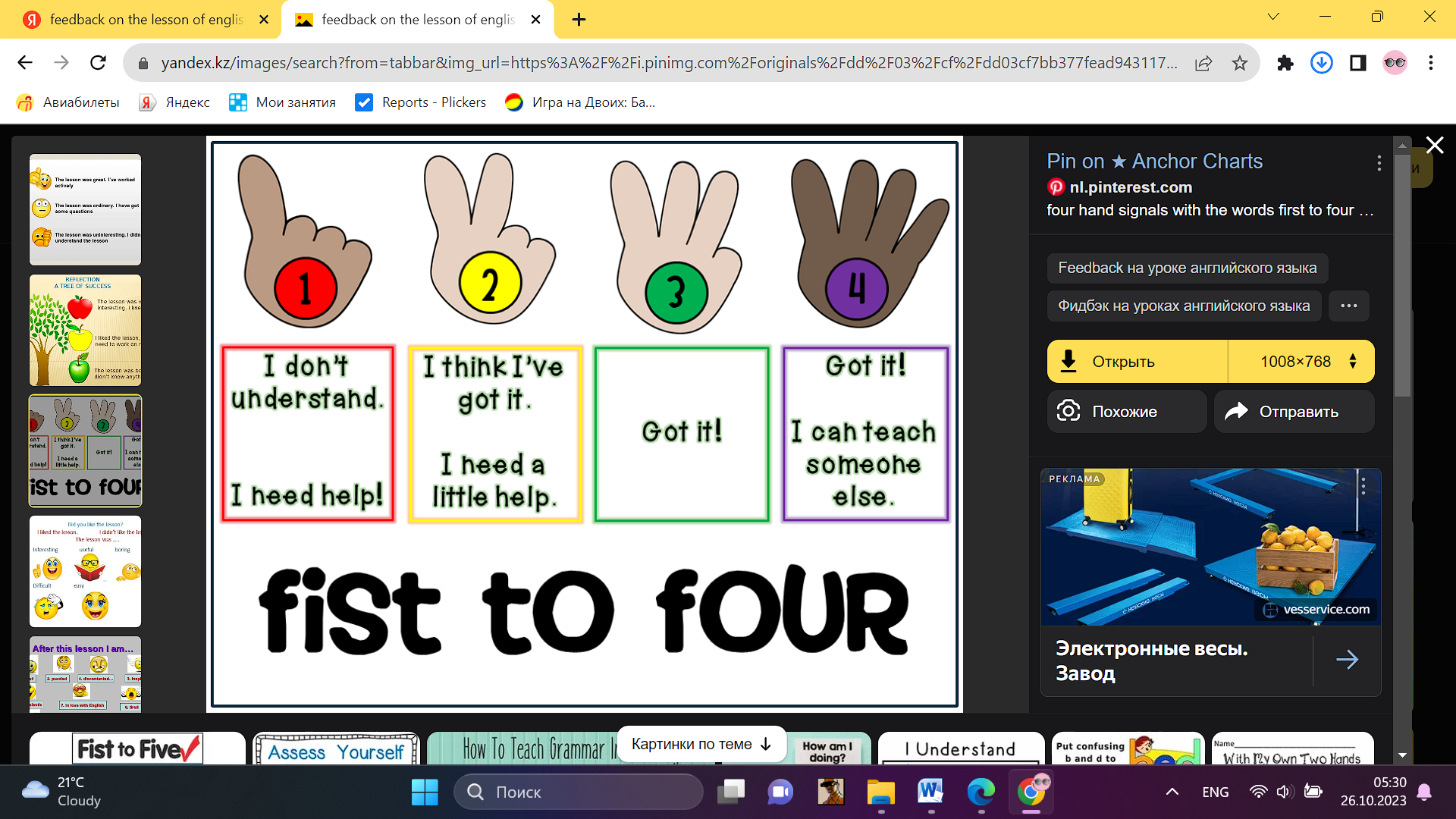
Назар аударыңыз. Бұл материалды сайт қолданушысы жариялаған. Егер материал сіздің авторлық құқығыңызды бұзса, осында жазыңыз. Біз ең жылдам уақытта материалды сайттан өшіреміз
Жақын арада сайт әкімшілігі сізбен хабарласады
қысқа мерзімді сабақ жоспарларын

Excel-6 қмж 2-тоқсан жинағы
Сатылымнан түскен қаражат авторға автоматты түрде аударылады. Толығырақ
беріледі

Дипломдар мен сертификаттарды алып үлгеріңіз!


Материалдың толық нұсқасын
жүктеп алып көруге болады
Short term plan: term 2
|
Unit: 3 Our Countryside |
Lesson 25 |
||
|
Teacher name: |
|
||
|
Date: |
|
||
|
Grade: 6 |
Number present: |
absent: |
|
|
Lesson title |
Vocabulary: Geography features |
||
|
Learning objectives |
6.3.2.1 ask more complex questions to get information about a growing range of general topics and some curricular topics 6.2.5.1 understand most specific information and detail of short, supported talk on a wide range of familiar topics 6.5.8.1 spell most high-frequency words accurately for a limited range of general topics |
||
|
Lesson objectives |
Learners will be able to: - present new vocabulary - match places to continents - match places to continents |
||
|
Value links |
Family – Family values are moral and ethical principles of typical family life, including sacrificing for loved ones, putting your loved ones first, and keeping your loved ones at the centre of your thoughts and actions. |
||
|
Plan |
|||
|
Stages / Time |
Teachers actions |
Students actions |
Assessment criteria |
Resources |
|
Beginning of the lesson Warming-up
3 min. Pre-learning «Brainstorming» method 7 min. |
Organization moment : 1.Greeting. Ask about the weather. The teacher sets the lesson objectives, letting students know what to anticipate from the lesson. Warming up Where are you from? How old are you? What color is it? How many students are there in class? What day of the week today? Hand out the completed Progress Report Cards for the previous module and ask the pupils to file them in their language. Lead – In
|
The aim: To develop pupils speaking skills and create friendly atmosphere Efficiency: By wishing each other they feel better and feel the support of others Students of the class are listed. Students' attention is drawn to the lesson. Students say different words from the picture •Learners remember previous lesson vocabulary •Learners answer the questions What time do you get up every morning? What time do you go to school? What do you do after the lesson? |
The teacher to assess learners for their ability. “Good job! Well done!” Formative Assessment
Good job! Descriptor: - remembers the lesson passed Point 1 Assessment criteria make basic statements related to personal information, match places to continents |
Pictures worksheet
Picture |
|
Middle of the lesson Presentation part. 30 min |
Ex:1 P:29 • Draw Ss’ attention to the pictures and ask various Ss to read out the geographical feature each one shows. Play the recording. Ex: 2 P: 29 • Present the continents and then explain the task. Go through the list of places and elicit whether Ss know any of them. Read out the example, and then elicit answers form Ss around the class. Play the recording. Ss listen and check their answers.
Ex: 3 P: 29 • Direct Ss’ attention to the pictures and ask various Ss around the class to describe them Ask them to imagine they are there and elicit what they might be able to see, hear, smell, etc Conclusion during the lesson some tasks differentiated by outcomes of the students and by their abilities. |
• Learners listen and repeat. ANSWERS Students’ own answer • Learners match the places to the continents ANSWERS Angel Falls is in South America. The Grand Canyon is in North America. Malta is in Europe. Lake Geneva is in Europe. The River Nile is in Africa. Niagara Falls is in North America. The Gobi Desert is in Asia. Ayers Rock is in Australia. Mount Vesuvius is in Europe. • Learners make sentences. ANSWERS Students own answer |
Descriptor: -Listen and repeat Total: 3 point
Self assessment Differentiation: «Verbal support» method is used to help Ss use new words in the sentences. Descriptor: - attention to the family tree - match the places to the continents Total: 3 point Descriptor: - make sentences. Total: 3 point -Make CCQ questions Yes / No |
Card Worksheet
Students book |
|
End of the lesson 5 min |
FEEDBACK Learners provide feedback on what they have learned at the lesson. Ex: P: Home task: Write the days |
|
Poster Success
|
|
Short term plan: term 2
|
Unit 3 Our Countryside |
Lesson 26 |
||
|
Teacher name: |
|
||
|
Date: |
|
||
|
Grade: 6 |
Number present: |
absent: |
|
|
Lesson title |
Reading: Experiences of a lifetime |
||
|
Learning objectives |
6.1.7.1 develop and sustain a consistent argument when speaking or writing 6.4.2.1 understand specific information and detail in texts on a growing range of familiar general and curricular topics, including some extended texts 6.3.3.1 give an opinion at sentence level on a limited range of general and curricular topics |
||
|
Value links |
Loyalty – Loyalty might be a core personal value to you if you highly prize friends that are reliable and trustworthy. You might put your friends or chosen family first, always being there for them when they need you. |
||
|
Lesson objectives |
Learners will be able to: - introduce the topic and predict the content of the text - consolidate information in |
||
|
Plan |
|||
|
Stages / Time |
Teachers actions |
Students actions |
Assessment criteria |
Resources |
|
Beginning of the lesson Warming-up
3 min Pre-learning «Brainstorming» method 7 min. |
Organization moment : 1.Greeting. Ask about the weather. The teacher sets the lesson objectives, letting students know what to anticipate from the lesson. Warming up Where are you from? How old are you? What color is it? How many students are there in class? What day of the week today? Ask a few pupils to stand up and stand in a row. Ask the rest of the class questions to revise the ordinals. Lead – In
|
The aim: To develop pupils speaking skills and create friendly atmosphere Efficiency: By wishing each other they feel better and feel the support of others Students of the class are listed. Students' attention is drawn to the lesson. Determines the topic and purpose of the lesson •Learners remember previous lesson vocabulary Students say different words from the picture Answer the question. |
The teacher to assess learners for their ability. “Good job! Well done!” Formative Assessment
Good job! Descriptor: - know daily routines vocabulary - know prepositions of place Point 1 Assessment criteria - Learners have met the learning objectives if they can talk about numbers and location; |
Pictures worksheet Student’s book |
|
Middle of the lesson Presentation part. 30 min |
Ex:1aa P:30 • Direct Ss' attention to the pictures and ask various Ss around the class to describe them. Ask them to imagine they are there and elicit what they might be able to see, hear, smell, etc Ex: 1b P: 30 • Read the name of each place aloud and elicit whether any Ss know of these places and what people can see/do there. Elicit a variety of questions about the places from Ss around th class. Write the best ones on the board Ex: 2a P: 30 • Give Ss time to read through the text again and answer the questions. Ask Ss to use the Word List to look up the meanings of the words in the Check these words box. Check Ss' answers Ex: 2b P: 30 • Read the rubric aloud and give Ss time to formulate their answers and write their sentences. Ask various Ss around the class to read out their sentences to the rest of the class. |
a• Pupils describe the pictures. ANSWERS The first picture shows a person scuba diving and a large fish swimming in front of them. I can see a large yellow fish with white spots and some smaller fish. I can't hear anything except my own breathing and I can't smell anything. The second picture shows an ancient ruined city on top of a mountain. I can see stone buildings and green mountains. I can smell the fresh air and the green grass and I can hear insects humming. I can feel a gentle breeze. The third picture shows a large sand dune in a big desert. I can see lots of sand and small bushes. I can see mountains in the distance. I can hear the sound of the wind blowing through the sand. I can feel a gentle breeze. b• Pupils write a question about each. ANSWERS Where is the person scuba diving? (The Great Barrier Reef, Australia) Where are these ancient ruins? (Peru) Where is this desert? (Altyn Emel) • Pupils read and mark sentences ANSWERS 1 F 2 T 3 T 4 T 5T Pupils write a few sentences. ANSWERS I was impressed that the Great Barrier Reef is 2,000 km long and might be seen from space. It is an impressive natural feature. I thought it was interesting that Machu Picchu is 2,430 metres above sea level because I think it must have been difficult to live high in the mountains so long ago. I was impressed that the Genghis Khan put stones to mark the singing dune 800 years ago. |
Descriptor: - describe the pictures. Total: 2 point pupils are evaluated by collecting fish Descriptor: - write a question about each. Total: 1 point Descriptor: - read and mark sentences Total: 2 point
Self assessment Descriptor: - write a few sentences. Total: 2 point -Make CCQ questions Yes / No Total: 10 point
|
Card Worksheet Students book |
|
End of the lesson 5 min |
FEEDBACK Learners provide feedback on what they have learned at the lesson. Ex: P: Home task: Write the days |
|
Poster Success
|
|
Short term plan: term 2
|
Unit 3 Our Countryside |
Lesson 27 |
||
|
Teacher name: |
|
||
|
Date: |
|
||
|
Grade: 6 |
Number present: |
absent: |
|
|
Lesson title |
Use of English: Present simple and Present continuous |
||
|
Learning objectives |
6.1.6.1 organise and present information clearly to others 6.5.2.1 write with minimal support about real and imaginary present events, activities and experiences happening now on a range of familiar general topics and some curricular topics 6.3.2.1 ask simple questions to get information about a limited range of general topics |
||
|
Lesson objectives |
Learners will be able to: - present and categorise new vocabulary - act out exchanges talking about activities - narrate person’s experience |
||
|
Value links |
Fairness – If you value fairness, you might be highly sensitive to situations at school or in the workplace where a teacher or a peer has exhibited favoritism or allowed someone to get away with living by a different set of rules to everyone else. |
||
|
Plan |
|||
|
Stages / Time |
Teachers actions |
Students actions |
Assessment criteria |
Resources |
|
Beginning of the lesson Warming-up
3 min Pre-learning «Brainstorming» method 7 min. |
Organization moment : 1.Greeting. Ask about the weather. The teacher sets the lesson objectives, letting students know what to anticipate from the lesson. Warming up Where are you from? How old are you? What color is it? How many students are there in class? What day of the week today? revise the vocabulary from the previous Lead – In
|
. The aim: To develop pupils speaking skills and create friendly atmosphere Efficiency: By wishing each other they feel better and feel the support of others Students of the class are listed. Students' attention is drawn to the lesson. • Learners remember previous lesson vocabulary Determines the topic and purpose of the lesson Students say different words from the picture |
The teacher to assess learners for their ability. “Good job! Well done!” Formative Assessment
Good job! Descriptor: - can tell the time Point 1 Assessment criteria - Learners have met the learning objectives if they can talk about persons character |
Pictures worksheet Picture |
|
Middle of the lesson Presentation part. 30 min |
Ex:3 P: 31 • Explain the task and give Ss time to match the words to form collocations. Tell Ss they may check in the text if they need to. • Check Ss' answers and then give Ss more time to complete the sentences. Check Ss' answers by asking various Ss to read out the completed sentences. Ex: 4a P: 31 • Write the headings on the board and ask Ss around the class to read out the activities one at a time and elicit which heading they go under. Ss copy the completed table from the board into their notebooks. Ex: 4b P: 31 • Explain/Elicit the meanings of the adjectives in the list. Ask a pair of Ss to model the example. Ss then work in pairs and act out similar exchanges using the adjectives. Monitor the task around the class. Then ask various pairs to act out their exchanges. Ex: 5 P: 31 • Explain the situation and the task and play the recording. Ss listen and put the events in the order they happened. Check Ss' answers and then elicit how lan felt at the end of his trip Conclusion during the lesson some tasks differentiated by outcomes of the students and by their abilities. |
•Pupils match the words. Use the phrases to complete the sentences. ANSWERS 1 e 2 f 3 g 4 a 5 C 6 b 7 d 1 coral reef 2 brilliant time 3 mysterious place 4 ancient city 5 rare wildlife 6 holiday resort 7 colourful fish •Pupils read the phrases. List them under the headings ANSWERS TRAVEL volunteer overseas ride an elephant swim with dolphins take pictures under water run with bulls SPORTS do a bungee jump run a marathon drive a racing car play rugby in an international match •Pupils use the adjectives. ANSWERS A: I'd like to do a bungee jump. So would I. I think it would be exciting. Would you like to run with bulls? A: Not really. I think it would be difficult. A: I'd like to ride an elephant. B: So would I. I think it would be interesting. Would you like to swim with dolphins? A: Yes, I would. I think it would be fun. A: I'd like to take pictures under water. B: So would I. I think it would be fun. Would you like to drive a racing car? A: Not really. I think it would be risky. A: I'd like to volunteer overseas. B: So would I. I think it would be interesting. •Pupils listen and put the sentences narrating his experiences in the correct order. ANSWERS |
Descriptor: - match the words - use the phrases to complete the sentences Total: 1 point
Descriptor: - understand general idea - read the phrases Total: 1 point
Descriptor: - work in pairs - use the adjectives. Total: 1 point Descriptor: -read and understand general idea - put the sentences narrating his experiences in the correct order. -Make CCQ questions Yes / No
pupils are evaluated by collecting pencils |
Card Worksheet |
|
End of the lesson 5 min |
FEEDBACK Learners provide feedback on what they have learned at the lesson. Ex: Home task: |
|
Poster Success
|
|
Short term plan: term 2
|
Unit 3: Our Countryside |
Lesson 28 |
||
|
Teacher name: |
|
||
|
Date: |
|
||
|
Grade: 6 |
Number present: |
absent: |
|
|
Lesson title |
Use of English: Present perfect |
||
|
Learning objectives |
6.1.1.1 use speaking and listening skills to solve problems creatively and cooperatively in groups 6.3.7.1 use appropriate subject-specific vocabulary and syntax to talk about a range of general topics, and some curricular topics 6.2.2.1 understand with little or no support most specific information in extended talk on a wide range of general and curricular topics |
||
|
Lesson objectives |
Learners will be able to: - present the present perfect affirmative & negative - practise past participles - present the present perfect interrogative and short answers - practise the present perfect interrogative |
||
|
Value links |
Honesty – You may highly value telling people the truth. This one gets tricky when being honest can be hurtful to others. So, a person who really puts honesty first might be the sort of person who will tell the truth even if it hurts to do so. |
||
|
Plan |
|||
|
Stages / Time |
Teachers actions |
Students actions |
Assessment criteria |
Resources |
|
Beginning of the lesson Warming-up
3 min Pre-learning «Brainstorming» method 7 min. |
Organization moment : 1.Greeting. Ask about the weather. The teacher sets the lesson objectives, letting students know what to anticipate from the lesson. Warming up Where are you from? How old are you? What color is it? How many students are there in class? What day of the week today? revise the language from the previous lesson Lead – In
|
The aim: To develop pupils speaking skills and create friendly atmosphere Efficiency: By wishing each other they feel better and feel the support of others Students of the class are listed. Students' attention is drawn to the lesson. • Learners talk about daily routines previous lesson vocabulary Determines the topic and purpose of the lesson Students say different words from the picture |
The teacher to assess learners for their ability. “Good job! Well done!” Formative Assessment
Good job! Descriptor: - talk about daily routines Point 1 Assessment criteria - Learners have met the learning objectives if they can talk about natural features |
Pictures worksheet Student’s book |
|
Middle of the lesson Presentation part. 30 min |
Ex:1 P:32 • Ss' books closed. Say, then write on the board: / have worked hard today. Tom hasn't worked hard today. Underline: have worked and hasn't worked. • Explain that this verb is in the present perfect and elicit the form (affirmative subject personal pronoun + have/has + past participle, negative - subject personal pronoun + haven't/hasn't + past participle). • Explain that the past participles of regular verbs are formed by adding -ed to the end of the verb and that irregular verbs have their own forms. Ex: 2 P: 32 • Explain the task and go through the example. OR Give Ss time to do the task, then direct them to the Irregular Verbs list at the back of their books to check their answers. Elicit which verbs are regular/irregular from various Ss around the class Ex: 3 P: 32 • Explain the task and read out the example. Give Ss time to complete the sentences, then check Ss' answers Ex: 4 P: 32 • Direct Ss' attention to the table and elicit how we form questions in the present perfect (have/has + subject personal pronoun+ past participle). • Explain/Elicit that we form short answers with Yes/No + subject personal pronoun + have/has/ haven't/hasn't. |
•Pupils copy and complete the table. Use the words. ANSWERS 1 have 2 hasn't 3 haven't have you ever had, has changed, has just come back, I've heard, I've taken, Mary has just been on, hasn't destroyed, they've visited, Kanat has done •Pupils write the past participles of the verbs below. ANSWERS 2 written (I) 3 won (I) 4 ridden (I) 5 travelled (R) 6 listened (R) 7 run (I) 8 gone (I) 9 given (I) 10 arrived (R) •Pupils use the verbs in Ex 2 to complete sentences. ANSWERS 2 has run 3 have travelled 4 hasn’t listened 5 have won 6 haven't ridden •Pupils read the table. ANSWERS Students own answer. |
Descriptor: - copy and complete the table. - Use the words Total: 2 point
Descriptor: - write the past participles of the verbs below. Total: 2 point
pupils are evaluated by collecting colour pencils Descriptor: - use the verbs in Ex 2 to complete sentences Total: 3 point
Descriptor: - read the table Total: 3 point -Make CCQ questions Yes / No Total: 10 point |
Card Worksheet Students book |
|
End of the lesson 5 min |
FEEDBACK Learners provide feedback on what they have learned at the lesson. Ex: Home task: |
|
Poster Success
|
|
Short term plan: term 2
|
Unit: 3 Our Countryside |
Lesson 29 |
||
|
Teacher name: |
|
||
|
Date: |
|
||
|
Grade: 6 |
Number present: |
absent: |
|
|
Lesson title |
Use of English: There is / are |
||
|
Learning objectives |
6.1.6.1 organise and present information clearly to others 6.5.2.1 write with minimal support about real and imaginary past events, activities and experiences on a range of familiar general topics and some curricular topics |
||
|
Lesson objectives |
Learners will be able to: - present adverbs used with the present perfect - ompare the present perfect/past simple - practise the present perfect and the past simple |
||
|
Value links |
Generosity – This may be a core value of yours if you cherish people who will give their time and resources to people in need. You may consider yourself to be a generous person if you find joy and meaning in giving to others. |
||
|
Plan |
|||
|
Stages / Time |
Teachers actions |
Students actions |
Assessment criteria |
Resources |
|
Beginning of the lesson Warming-up
3 min Pre-learning «Brainstorming» method 7 min. |
Organization moment : 1.Greeting. Ask about the weather. The teacher sets the lesson objectives, letting students know what to anticipate from the lesson. Warming up Where are you from? How old are you? What color is it? How many students are there in class? What day of the week today? Revise the vocabulary from the previous lesson Lead – In
|
The aim: To develop pupils speaking skills and create friendly atmosphere Efficiency: By wishing each other they feel better and feel the support of others Students of the class are listed. Students' attention is drawn to the lesson. • Learners talk about days of the week previous lesson vocabulary Determines the topic and purpose of the lesson Students say different words from the picture |
The teacher to assess learners for their ability. “Good job! Well done!” Formative Assessment
Good job! Descriptor: - talk about days of the we Total: 1 point Assessment criteria - Learners have met the learning objectives if they can talk about your last I holidays. |
Pictures worksheet picture |
|
Middle of the lesson Presentation part. 30 min |
Ex:6 P:33 • licit the L1 equivalents for the sentences. Say, then write on the board: I have been a teacher for 10 years. I have worked at this school since 2005. Explain that we use for/since in affirmative and negative sentences. Explain that we use for to express duration and since to state when an action started. Give Ss time to complete the task. Check Ss' answers and elicit their reasons for their choices. Ex: 7 P: 33 • Read out the theory box and elicit any similar structures in Ss' L1. Ex: 8 P: 33 • Give Ss time to complete the task and then check Ss answers. Remind Ss that with the past simple a time is stated or implied. Ex: 9 P: 33 • Give Ss time to complete the task and then check Ss answers. |
• Pupils read the examples and say them in your language. ANSWERS 1 for (to show duration) 2 since (to show when an action started) 3 since (to show when an action started) 4 for (to show duration) 5 since (to show when an action started) • Pupils read the theory. Answer the question. ANSWERS Students own answer • Pupils put the verbs in brackets into the present perfect or the past simple. ANSWERS 1 travelled 2 have won 3 have never visited 4 came 5 met 6 has lived • Pupils read the theory. Answer the question. ANSWERS 1 Have you ever had 2 went 3 could not/ couldn't 4 suggested 5 got 6 has always liked 7 blew 8 spent |
Descriptor: - read the examples - say them in your language Total: 3 point Descriptor: - read the theory Total: 2 point Descriptor: - put the verbs in brackets into the present perfect or the past simple. Total: 2 point Descriptor: - read the theory. Answer the question Total: 2 point
pupils are evaluated by collecting fish
-Make CCQ questions Yes / No Total: 10 point |
Card Worksheet Vocabulary card |
|
End of the lesson 5 min |
FEEDBACK Learners provide feedback on what they have learned at the lesson. Ex: Home task: |
|
Poster Success
|
|
Short term plan: term 2
|
Unit 3 Our Countryside |
Lesson 30 |
||
|
Teacher name: |
|
||
|
Date: |
|
||
|
Grade: 6 |
Number present: |
absent: |
|
|
Lesson title |
Reading: An unforgettable destination |
||
|
Learning objectives |
6.1.9.1 use imagination to express thoughts, ideas, experiences and feelings 6.2.1.1 understand with little or no support the main points in extended talk on a wide range of general and curricular topics. 6.3.7.1 use appropriate subject-specific vocabulary and syntax to talk about a range of general topics, and some curricular topics |
||
|
Lesson objectives |
Learners will be able to: - introduce the topic and stimulate interest in the text - read for specific information - consolidate comprehension of a text and express your opinion |
||
|
Value links |
Generosity – This may be a core value of yours if you cherish people who will give their time and resources to people in need. You may consider yourself to be a generous person if you find joy and meaning in giving to others. |
||
|
Plan |
|||
|
Stages / Time |
Teachers actions |
Students actions |
Assessment criteria |
Resources |
|
Beginning of the lesson Warming-up
3 min Pre-learning «Brainstorming» method 7 min. |
Organization moment : 1.Greeting. Ask about the weather. The teacher sets the lesson objectives, letting students know what to anticipate from the lesson. Warming up Where are you from? How old are you? What color is it? How many students are there in class? What day of the week today? Revise the language of the previous lesson. Lead – In
|
The aim: To develop pupils speaking skills and create friendly atmosphere Efficiency: By wishing each other they feel better and feel the support of others Students of the class are listed. Students' attention is drawn to the lesson. Determines the topic and purpose of the lesson • Learners talk about favourite dayprevious lesson vocabulary Students say different words from the picture and count one to hundred |
The teacher to assess learners for their ability. “Good job! Well done!” Formative Assessment
Good job! Descriptor: - talk about favourite day Total: 1 point Assessment criteria - Learners have met the learning objectives if they can talk about natural wonders. |
Pictures worksheet Student’s book |
|
Middle of the lesson Presentation part. 30 min |
Ex:1 P:34 • Draw Ss' attention to the title and the pictures and elicit a variety of questions about Charyn Canyon from Ss around the class. Write three of them on the board. Play the recording. Ss listen and follow the text in their books and find out if their questions were answered. Ex: 2 P: 34 • Give Ss time to read the text again. Ask Ss to use the Word List to lookup the meanings of the words in the Check these words box, then give Ss some time to correct state statements. Check Ss' answers around the class. Ex: 3 P: 34 • Give Ss time to look up the meanings of the words in bold in their dictionaries. Elicit definitions from Ss around the class. Ex: 4 P: 34 Ss discuss in pairs what they found interesting in the text and compare opinions. Ask various pairs to report back to the class. Conclusion during the lesson some tasks differentiated by outcomes of the students and by their abilities. |
Pupils write three questions ANSWERS Where is it? (200 km from Almaty) How long is it? (80 km long) What wildlife lives there? (hares, foxes, marmots, snakes, lizards, fish) Pupils read the text again and correct the statement. ANSWERS 1 Charyn Canyon is not the biggest canyon in the world. 2 It is located 200 kilometres from Almaty. 3 Rare ash trees grow at the bottom of the valley. 4 Thousands of years of strong winds have formed the shapes of the rocks. 5 One part of the canyon has rocks that buildings Pupils explain the words in bold. You can use your dictionary. ANSWERS Students own answer Pupils tell your partner. Answer the question. ANSWERS A: I was impressed that the canyon is 80 km long and by the variety of wildlife there, including the rare ash trees. B: I was impressed that there is an ancient Ice Age forest in the nearby valley and that some of the rocks look like buildings. |
Descriptor: - write three questions Total: 2 point Self assessment Descriptor: - read the text again and correct the statement. Total: 3 point Descriptor: - explain the words in bold Total: 3 point pupils are evaluated by collecting colour pencils -Make CCQ questions Yes / No Total: 10 point |
Card Worksheet Students book |
|
End of the lesson 5 min |
FEEDBACK Learners provide feedback on what they have learned at the lesson. Ex: Home task: |
|
Poster Success
|
|
Short term plan: term 2
|
Unit 3: Our Countryside |
Lesson 31 |
||
|
Teacher name: |
|
||
|
Date: |
|
||
|
Grade: 6 |
Number present: |
absent: |
|
|
Lesson title |
Listening: Quiz Sharyn canyon |
||
|
Learning objectives |
6.3.7.1 use appropriate subject-specific vocabulary and syntax to talk about a range of general topics, and some curricular topics 6.5.6.1 link independently, sentences into coherent paragraphs using a variety of basic connectors on a range of familiar general topics and some curricular topics |
||
|
Lesson objectives |
Learners will be able to: - pronounce words and phrases correctly -write a coherent paragraph /short text stating and explaining an idea, or describing a place, object |
||
|
Value links |
Integrity – Integrity is the quality of having strong moral principles. So, a person with integrity will always act with honesty and adhere to their own moral code regardless of what others do. |
||
|
Plan |
|||
|
Stages / Time |
Teachers actions |
Students actions |
Assessment criteria |
Resources |
|
Beginning of the lesson Warming-up
3 min Pre-learning «Brainstorming» method 7 min. |
Organization moment : 1.Greeting. Ask about the weather. The teacher sets the lesson objectives, letting students know what to anticipate from the lesson. Warming up Hot Potato Students stand in a circle and pass an object around. When the timer goes off, or the music stops, the student holding the hot potato has to do something. Revise the language of the previous lesson. Lead – In
|
The aim: To develop pupils speaking skills and create friendly atmosphere Efficiency: By wishing each other they feel better and feel the support of others Students of the class are listed. Students' attention is drawn to the lesson. • Learners write the numbers from previous lesson Determines the topic and purpose of the lesson Students say different words from the picture |
The teacher to assess learners for their ability. “Good job! Well done!” Formative Assessment
Good job! Descriptor: -know key phrases - know vocabulary of previous lesson Total: 1 point Assessment criteria - Learners have met the learning objectives if they can: To talk about Sharyn canyon |
Pictures worksheet Student’s book |
|
Middle of the lesson Presentation part. 30 min |
Ex:1 P:34 • Introduce the topic and stimulate interest in the text Draw Ssattention to the title and the pictures and elicit a variety of questions about Charyn Canyon from Ss around the class. Write three of them on the board. Play the recording. Ss listen and follow the text in their books and find out if their questions were answered. Ex: 2 P: 34 • Read for specific information Give Ss time to read the text again. Ask Ss to use the Word List to lookup the meanings of the words in the Check these words box, then give Ss some time to correct state statements. Check Ss' answers around the class Ex: 3 P: 34 • Сheck meanings of unknown words Give Ss time to look up the meanings of the words in bold in their dictionaries. Elicit definitions from Ss around the class. Conclusion during the lesson some tasks differentiated by outcomes of the students and by their abilities. |
Pupils write three questions. Answer the question. ANSWERS Where is it? (200 km from Almaty) How long is it? (80 km long) What wildlife lives there? (hares, foxes, marmots, snakes, lizards, fish) Pupils read the text again and correct statements. ANSWERS 1 Charyn Canyon is not the biggest canyon in the world. 2 It is located 200 kilometres from Almaty. 3 Rare ash trees grow at the bottom of the valley. 4 Thousands of years of strong winds have formed the shapes of the rocks. 5 One part of the canyon has rocks that look like buildings. Pupils explain the words in bold. ANSWERS spectacular (adj): amazing oasis (n): a place with water and plants in the desert breathtaking (adj): extremely beautiful |
Descriptor: - write three questions - answer the question. Total: 2 point Descriptor: - read the text - correct statements Total: 3 point Descriptor: - explain the words in bold. Total: 2 point
pupils are evaluated by collecting fish
-Make CCQ questions Yes / No |
Card Worksheet Students book |
|
End of the lesson 5 min |
FEEDBACK Learners provide feedback on what they have learned at the lesson. Ex: Home task: |
|
Poster Success
|
|
Short term plan: term 2
|
Unit 3: Our Countryside |
Lesson 32 |
||
|
Teacher name: |
|
||
|
Date: |
|
||
|
Grade: 6 |
Number present: |
absent: |
|
|
Lesson title |
Everyday English: Booking a holiday |
||
|
Learning objectives |
6.1.3.1 respect differing points of view 6.2.6.1 deduce meaning from context in short, supported talk on an increasing range of general and curricular topics 6.4.6.1 recognise the attitude or opinion of the writer on a growing range of unfamiliar general and curricular topics, including some extended texts |
||
|
Lesson objectives |
Learners will be able to: - comprehend short talk that contains unfamiliar language and compensate lack of understanding when listening - identify how the author feels in short and simple texts and stories |
||
|
Value links |
Perseverance – People who value perseverance will work through adversity and be determined to get a result. This is a great treat for employees and entrepreneurs alike. |
||
|
Plan |
|||
|
Stages / Time |
Teachers actions |
Students actions |
Assessment criteria |
Resources |
|
Beginning of the lesson Warming-up 3 min
Pre-learning «Brainstorming» method 7 min. |
Organization moment : 1.Greeting. Ask about the weather. The teacher sets the lesson objectives, letting students know what to anticipate from the lesson. Warming up Hot Potato Students stand in a circle and pass an object around. When the timer goes off, or the music stops, the student holding the hot potato has to do something. Revise the language of the previous lesson. Lead-in
|
The aim: To develop pupils speaking skills and create friendly atmosphere Efficiency: By wishing each other they feel better and feel the support of others Students of the class are listed. Students' attention is drawn to the lesson. • Learners talk about favourite day previous lesson vocabulary Determines the topic and purpose of the lesson Students say different words from the picture |
The teacher to assess learners for their ability. “Good job! Well done!” Formative Assessment
Good job! Descriptor: -know key phrases - can make sentence - know vocabulary of previous lesson Total: 1 point Assessment criteria - Learners have met the learning objectives if they can talk about four walls |
Pictures worksheet Student’s book |
|
Middle of the lesson Presentation part. 30 min |
Ex:1 P:36 • Practise pronunciation of situational language Play the recording. Ss listen and repeat chorally and/or individually. Pay attention to Ss pronunciation and intonation and correct as necessary. Ex: 2 P: 36 • Listen for specific information Read the rubric aloud. Play the recording. Ss listen and follow the text in their books and find out where Ms Akhmetova wants to go. Ex: 3 P: 36 • Learn synonymous phrases Read out the phrases. Refer Ss back to the dialogue and elicit the synonymous ones from various Ss around the class. Ex: 4 P: 36 • act out a dialogue Ask Ss to work in pairs, take roles and read out the dialogue. Monitor the activity around the class and ask some pairs to read out the dialogue in front of the class Conclusion during the lesson some tasks differentiated by outcomes of the students and by their abilities. |
Pupils listen and repeat. ANSWERS Students own answer. Pupils read the dialogue. ANSWERS Ms Akhmetova wants to go to Bath Pupils find sentences in the dialogue which mean. ANSWERS May I help you? - Can I help you? The cost is £180.- It's £180 per person. My pleasure. - You're welcome. Enjoy your day. - Have a nice day Pupils take roles and read the dialogue aloud. ANSWERS Students own answer |
Descriptor: - listen and repeat Total: 2 point
Descriptor: - read the dialogue Total: 3 point Descriptor: - find sentences in the dialogue Total: 3 point pupils are evaluated by collecting colour pencils Descriptor: - take roles and read the dialogue -Make CCQ questions Yes / No Total: 10 point |
Card Worksheet Students book |
|
End of the lesson 5 min |
FEEDBACK Learners provide feedback on what they have learned at the lesson. Ex: Home task: |
|
Poster Success
|
|
Short term plan: term 2
|
Unit 3: Our Countryside |
Lesson 33 |
||
|
Teacher name: |
|
||
|
Date: |
|
||
|
Grade: 6 |
Number present: |
absent: |
|
|
Lesson title |
Across cultures: Natural wonders of the world |
||
|
Learning objectives |
6.1.10.1 use talk or writing as a means of reflecting on and exploring a range of perspectives on the world 6.3.8.1 recount basic stories and events on a range of general and curricular topics ( describe vertebrates) 6.4.1.1 understand the main points in texts on a growing range of unfamiliar general and curricular topics, including some extended texts |
||
|
Lesson objectives |
Learners will be able to: - produce a narrative as a linear sequence of events - identify the central idea, the intended audience and the author’s purpose |
||
|
Value links |
Self-Discipline – If you value self-discipline, you might be a person who wakes up early, exercises daily, and doesn’t get distracted by vices. |
||
|
Plan |
|||
|
Stages / Time |
Teachers actions |
Students actions |
Assessment criteria |
Resources |
|
Beginning of the lesson Warming-up 3 min
Pre-learning «Brainstorming» method 7 min. |
Organization moment : 1.Greeting. Ask about the weather. The teacher sets the lesson objectives, letting students know what to anticipate from the lesson. Warming up Hot Potato Students stand in a circle and pass an object around. When the timer goes off, or the music stops, the student holding the hot potato has to do something. Write some of the words from the previous lesson Lead – In
|
“The wish lamp” method helps to start the lesson with good wishes to each other. The aim: To develop pupils speaking skills and create friendly atmosphere Efficiency: By wishing each other they feel better and feel the support of others Students of the class are listed. Students' attention is drawn to the lesson. • Learners talk about rooms previous lesson vocabulary Determines the topic and purpose of the lesson Students say different words from the picture |
The teacher to assess learners for their ability. “Good job! Well done!” Formative Assessment
Good job! Descriptor: -know key phrases - can make sentence - know vocabulary of previous lesson Total: 1 point Assessment criteria - Learners have met the learning objectives if they can: Talk about тatural wonders of the world |
Pictures worksheet Student’s book |
|
Middle of the lesson Presentation part. 30 min |
Ex:1 P:37 • Listen and read for specific information Direct Ss' attention to the pictures and elicit what, if anything, they know about them. Read the sentences aloud one at a time and ask Ss to say if they think they are true or not. Play the recording. Ss listen and follow the text in their books to find out. Ask Ss to use the Word List to look up the meanings of the words in the Check these words boxAllow Ss some time to complete the task. Check Ssanswers. Ex: 2 P: 37 • personalise the topic and talk and write about a local place of natural beauty Ask Ss to think of a place of natural beauty in Ss' own country they are familiar with. Allow Ss two or three minutes to make notes under the headings. Allow Ss a further five minutes to use their answers to write a short paragraph about the place. Ask various Ss to read out their piece of writing to the class. Ex: 3 P: 37 • practise silent letters Go through the Study Skills box with Ss. Ask Ss to go through the list of words and try to guess which the silent letters are. Play the recording. Ss listen and check. Play the recording again. Ss listen and repeat chorally or individually. Answer Key east, walk, talk, lake, water, where, listen, clear, castle, two, often, know Conclusion during the lesson some tasks differentiated by outcomes of the students and by their abilities. |
• Pupils answer the question ANSWERS 1 T 2 T 3 F 4 T • Pupils collect information about a place of natural beauty. Make notes under the headings ANSWERS Name: Kolsai Lake Location: Southern Kazakhstan in Almaty region Activities: trekking, horse riding, trout fishing, lake tours Kolsai Lake is in the Almaty region of southern Kazakhstan. It is a beautiful lake near the Tien Shan Mountains. Kolsai Lake is a great place for nature lovers. You can go trekking and horse riding in the summer. Also, there are amazing lake tours and great places for trout fishing. Kolsai Lake is one of the most outstanding places of natural beauty in Kazakhstan • Pupils find sentences in the dialogue. ANSWERS east, walk, talk, lake, water, where, listen, clear, castle, two, often, know |
Descriptor: - answer the question Total: 2 point
Self Assessment Descriptor: - collect information about a place of natural beauty - make notes under the headings Total: 2 point Descriptor: - find sentences in the dialogue. Total: 2 point -Make CCQ questions Yes / No Total: 10 point
|
Card Worksheet Students book |
|
End of the lesson 5 min |
FEEDBACK Learners provide feedback on what they have learned at the lesson. Ex: Home task: |
|
Poster Success
|
|
Short term plan: term 2
|
Unit 3 Our Countryside |
Lesson 34 |
||
|
Teacher name: |
|
||
|
Date: |
|
||
|
Grade: 6 |
Number present: |
absent: |
|
|
Lesson title |
Across the curriculum: Earth’s ocean |
||
|
Learning objectives |
6.1.5.1 use feedback to set personal learning objectives 6.2.6.1 deduce meaning from context in short, supported talk on an increasing range of general and curricular topics 6.4.5.1 deduce meaning from context in short texts on a limited range of familiar general and curricular topics |
||
|
Lesson objectives |
Learners will be able to: - use simple context clues strategies to identify meaning of unknown words from the context - comprehend short talk that contains unfamiliar language and compensate lack of understanding when listening |
||
|
Value links |
Humility – You might highly value humility if you find yourself disgusted by people who are arrogant or braggadocious, and instead find yourself gravitating to people who are always expressing their gratefulness for the blessings in their life. |
||
|
Plan |
|||
|
Stages / Time |
Teachers actions |
Students actions |
Assessment criteria |
Resources |
|
Beginning of the lesson Warming-up 3 min Pre-learning «Brainstorming» method 7 min. |
Organization moment : 1.Greeting. Ask about the weather. The teacher sets the lesson objectives, letting students know what to anticipate from the lesson. Warming up Hot Potato Students stand in a circle and pass an object around. When the timer goes off, or the music stops, the student holding the hot potato has to do something. Lead – In
|
The aim: To develop pupils speaking skills and create friendly atmosphere Efficiency: By wishing each other they feel better and feel the support of others Students of the class are listed. Students' attention is drawn to the lesson. Learners find mime an action associated with one of the places Determines the topic and purpose of the lesson Students say different words from the picture |
The teacher to assess learners for their ability. “Good job! Well done!” Formative Assessment
Good job! Descriptor: -know key phrases - know vocabulary of previous lesson Total: 1 point Assessment criteria - Learners have met the learning objectives if they can: Talk about ocean |
Pictures worksheet Student’s book |
|
Middle of the lesson Presentation part. 30 min |
Ex:1 P:38 • Introduce the topic and predict the content of the text • Elicit as many of the oceans as possible from Ss around the class and read out the questions in the rubric. • Play the recording. Ss listen and follow the text in their books and find out the answers. Ex: 2 P: 38 • Read for specific information • Allow Ss three minutes to read the text again. Ther Ss answer the questions. Ask Ss to use the Word Lis to look up the meaning of the words in the Chec these words box. • Check Ss' answers around the class. Ex: 3 P: 38 • Consolidate information from a • Ss talk in pairs and say two things they remember about each ocean from the text. • Ask various Ss around the class to share their answers with the rest of the class. Conclusion during the lesson some tasks differentiated by outcomes of the students and by their abilities. |
• Pupils name the oceans. Answer the questions ANSWERS Student’s own answer Pacific Ocean, Atlantic Ocean, Indian Ocean, Southern Ocean, Arctic Ocean They cover around 70% of the Earth's surface. The smallest ocean is the Arctic Ocean and the largest is the Pacific Ocean. • Pupils read the text and answer the question. ANSWERS 1 The Pacific Ocean is the deepest ocean in the world. 2 Parts of the Arctic Ocean and the Southern Ocean are covered in ice. 3 The Atlantic Ocean is 82,000,000 km². 4 We can find volcanoes in the Pacific Ocean. 5 The deepest area of the Pacific Ocean is called the Mariana Trench. 6 Hawaii's in the Pacific Ocean. 7 Under the Atlantic Ocean, there is a mountain range called the Mid-Atlantic Ridge. 8 The Indian Ocean has lots of rain for half the year. • Pupils say two things you remember about each ocean to your partner. ANSWERS Pacific Ocean: It is the deepest ocean and has a lot of volcanic islands. Atlantic Ocean: There is a mountain range under it and it is the second largest ocean. Indian Ocean: It usually has gentle breezes, but for half the year it has lots of rain. Southern Ocean: It is the fourth largest ocean and it's very cold. Arctic Ocean: Much of it is covered in ice and it isn't as deep as the other oceans. |
Descriptor: - name the oceans - answer the questions Total: 2 point Descriptor: - read the text - answer the question Total: 2 point
Descriptor: - say two things you remember Total: 2 point pupils are evaluated by collecting colour pencils -Make CCQ questions Yes / No |
Card Worksheet Students book |
|
End of the lesson 5 min |
FEEDBACK Learners provide feedback on what they have learned at the lesson. Ex: Home task: |
|
Poster Success
|
|
Short term plan: term 2
|
Unit 3 Our Countryside |
Lesson 35 |
||
|
Teacher name: |
|
||
|
Date: |
|
||
|
Grade:6 |
Number present: |
absent: |
|
|
Lesson title |
Writing; An email comparing two places Summative assessment for the unit 3 |
||
|
Learning objectives |
6.1.5.1 use feedback to set personal learning objectives 6.2.6.1 deduce meaning from context in short, supported talk on an increasing range of general and curricular topics 6.6.10.1 use present continuous forms with present meaning on a limited range of familiar general and curricular topics |
||
|
Lesson objectives |
Learners will be able to: - use simple context clues strategies to identify meaning of unknown words from the context - use the present continuous tense to refer to events at the time of speaking |
||
|
Value links |
Kindness – If you value kindness, you’ll likely always be respectful of people around you, be gentle with criticism, and always willing to welcome people with open arms. |
||
|
Plan |
|||
|
Stages / Time |
Teachers actions |
Students actions |
Assessment criteria |
Resources |
|
Beginning of the lesson Warming-up 3 min Pre-learning «Brainstorming» method 7 min. |
Organization moment : 1.Greeting. Ask about the weather. The teacher sets the lesson objectives, letting students know what to anticipate from the lesson. Warming up Hot Potato Students stand in a circle and pass an object around. When the timer goes off, or the music stops, the student holding the hot potato has to do something. Revise the language of the previous lesson Lead – In
|
The aim: To develop pupils speaking skills and create friendly atmosphere Efficiency: By wishing each other they feel better and feel the support of others Students of the class are listed. Students' attention is drawn to the lesson. Learners find mime an action associated with one of the places Determines the topic and purpose of the lesson Students say different words from the picture |
The teacher to assess learners for their ability. “Good job! Well done!” Formative Assessment
Good job! Assessment criteria - Learners have met the learning objectives if they can: Talk about two places Descriptor: -know key phrases - know vocabulary of previous lesson Total: 1 point |
Pictures worksheet Student’s book |
|
Middle of the lesson Presentation part. 30 min |
Ex:1 P:39 • Read for lexico-grammatical structure • Explain the task and go through the Study Skills box. Allow Ss time to complete the gaps. • Ss compare their answers with their partner, then check Ss' answers around the class. • Ask Ss to use the Word List to look up the meanings of the words in the Check these words box. Ex: 2 P: 39 • present and practise simple linkers •Go through the Study Skills box again and elicit further examples for each of the linkers presented •Explain the task. Ss complete the task. Check Ss' answers. Ex: 3 P: 39 • write an email comparing • Explain the task and go through the paragraph plan. Give Ss time to complete the task in class. Ask various Ss to read out their emails to the class. DR • Alternatively, assign as HW and check Ss answers in the next lesson. Summative assessment for the unit «Our countryside» Conclusion during the lesson some tasks differentiated by outcomes of the students and by their abilities. |
Pupils read the email and fill in the gaps. Compare with your partner. ANSWERS 1 because 2 and 3 but 4 on the other hand 5 When Pupils use the linkers in brackets to join the sentences. ANSWERS 1 Do you like skiing, or do you prefer snowboarding? 2 We go to a restaurant for lunch after we leave the beach in the morning. 3 Last year, I went to Hawaii where I learnt how to surf. 4 I have breakfast before I go hiking in the park. 5 If you want to relax, you can go to Burabai Pupils write an email to your English pen-friend ANSWERS Dear Bob, There are so many beautiful places in my country. My two favourites are Astana and Almaty. Astana is the capital of Kazakhstan. It is very new and has lots of beautiful modern buildings. On the other hand, Almaty is an older city. It is the biggest city in Kazakhstan and it has lots of beautiful streets and old buildings. What about you? Which places in your country do you like the most? Why? Write back soon, Chingiz |
Descriptor: - read the email - and fill in the gaps Total: 2 point pupils are evaluated by collecting fish
Descriptor: - use the linkers - join the sentences. Total: 2 point Descriptor: - write an email Total: 2point -Make CCQ questions Yes / No |
Card Worksheet Students book |
|
End of the lesson 5 min |
FEEDBACK Learners provide feedback on what they have learned at the lesson. Ex: Home task: |
|
Poster Success
|
|
Short term plan: term 2
|
Unit 4 Drama and comedy |
Lesson 36 |
||
|
Teacher name: |
|
||
|
Date: |
|
||
|
Grade: 6 |
Number present: |
absent: |
|
|
Lesson title |
Vocabulary: Drama |
||
|
Learning objectives |
6.1.2.1 use speaking and listening skills to provide sensitive feedback to peers 6.3.7.1 use appropriate subject-specific vocabulary and syntax to talk about a range of general topics, and some curricular topics |
||
|
Lesson objectives |
Learners will be able to: - evaluate and critique the work of others - differentiate and use the meaning, parts of speech and word forms accurately |
||
|
Value links |
Gratitude – You value gratitude if you find yourself respecting people who say please and thank you. If you’re a religious person who values gratitude, you may always insist on praying before eating your dinner. |
||
|
Plan |
|||
|
Stages / Time |
Teachers actions |
Students actions |
Assessment criteria |
Resources |
|
Beginning of the lesson Warming-up 3 min Pre-learning «Brainstorming» method 7 min. |
Organization moment : 1.Greeting. Ask about the weather. The teacher sets the lesson objectives, letting students know what to anticipate from the lesson. Warming up Hot Potato Students stand in a circle and pass an object around. When the timer goes off, or the music stops, the student holding the hot potato has to do something. Ask the pupils questions about previous lesson. Lead – In
|
The aim: To develop pupils speaking skills and create friendly atmosphere Efficiency: By wishing each other they feel better and feel the support of others Students of the class are listed. Students' attention is drawn to the lesson. Learners answer the question Determines the topic and purpose of the lesson Students say different words from the picture What types films do you like? |
The teacher to assess learners for their ability. “Good job! Well done!” Formative Assessment
Good job! Assessment criteria - To revise school rules; to write about classroom rules; to develop the pupils’ listening skills through a song. Descriptor: -can speak fluently on theme -can follow the structure Total: 2point |
Pictures worksheet Student’s book |
|
Middle of the lesson Presentation part. 30 min |
Ex:1 P:41 • present new vocabulary and introduce the topic of the module DR Read out the definitions and elicit any popular comedies or tragedies from Ss around the class (Ss' own answers Ex: 2 P: 41 • present new vocabulary and introduce the topic of the module DR Read out the definitions and elicit any popular comedies or tragedies from Ss around the class (Ss' own answers Conclusion during the lesson some tasks differentiated by outcomes of the students and by their abilities. |
Pupils read the definitions of drama, tragedy and comedy. Answer the question. ANSWERS Student’s own answer Pupils read the blurbs and in pairs decide whether these plays are comedies or tragedies. Give reason. ANSWERS I think 'Hamlet' is a tragedy because it mentions death, murder and revenge. I think 'As You Like It' is a comedy because a woman dresses up as a boy and tries to trick people. I think 'Romeo and Juliet' is a tragedy because it is about two families which are enemies and how this affects their children's lives |
Descriptor: - read the definitions - answer the questions Total: 1 point
pupils are evaluated by collecting fish Descriptor: - read the blurbs. - identify the plays -Make CCQ questions Yes / No |
Card Worksheet Students book |
|
End of the lesson 5 min |
FEEDBACK Learners provide feedback on what they have learned at the lesson. Ex: Home task: |
|
Poster Success
|
|
Short term plan: term 2
|
Unit 4 Drama and comedy |
Lesson 37 |
||
|
Teacher name: |
|
||
|
Date: |
|
||
|
Grade: 6 |
Number present: |
absent: |
|
|
Lesson title |
Reading: Oliver Twist |
||
|
Learning objectives |
6.1.9.1 use imagination to express thoughts, ideas, experiences and feelings 6.4.2.1 understand specific information and detail in texts on a growing range of familiar general and curricular topics, including some extended texts |
||
|
Lesson objectives |
Learners will be able to: - apply appropriate descriptive language to create different types of (grade-appropriate) texts and speeches - identify specific information |
||
|
Value links |
Patience – A person who has patience as a core personal value is going to prioritize giving their time to others. They will sit down and be calm while waiting for others. This is a great trait for a teacher. |
||
|
Plan |
|||
|
Stages / Time |
Teachers actions |
Students actions |
Assessment criteria |
Resources |
|
Beginning of the lesson Warming-up 3 min Pre-learning «Brainstorming» method 7 min. |
Organization moment : 1.Greeting. Ask about the weather. The teacher sets the lesson objectives, letting students know what to anticipate from the lesson. Warming up Hot Potato Students stand in a circle and pass an object around. When the timer goes off, or the music stops, the student holding the hot potato has to do something. Revise the vocabulary of the previous lesson Lead – In
|
. The aim: To develop pupils speaking skills and create friendly atmosphere Efficiency: By wishing each other they feel better and feel the support of others Students of the class are listed. Students' attention is drawn to the lesson. Determines the topic and purpose of the lesson Students say different words from the picture Did you watch a film about Oliver twist? |
The teacher to assess learners for their ability. “Good job! Well done!” Formative Assessment
Good job! Assessment criteria - Learners have met the learning objectives if they can: explore other subject areas (Geography) talk about places around the house |
Pictures worksheet Student’s book |
|
Middle of the lesson Presentation part. 30 min |
Ex:1 P:42 • Introduce the topic and stimulate interest in the text •Elicit what, if anything, Ss know about Charles Dickens. • Ss read the biography in their books and find out the answer to the question in the rubric. Ex: 2 P: 42 • Read for gist • Draw Ss' attention to the picture. Read the questions in the rubric aloud. Elicit Ss' guesses. • Play the recording. Ss listen and follow the text in their books to find out. • Ask Ss to use the Word List to look up the meanings of the words in the Check these words box. Ex: 3 P: 43 •Read for specific information •Allow Ss two minutes to read the text again and answer the questions. • Check Ss' answers around the class. Ex: 4 P: 43 •consolidate new vocabulary through synonyms • Draw Ss attention to the words in bold in the text and give Ss time to match them to the synonymous words/phrases in the list. • Check Ss answers around the class. Conclusion during the lesson some tasks differentiated by outcomes of the students and by their abilities. |
Pupils read the short biography to find out. Answer the question. ANSWERS Charles Dickens was an English writer who grew up in Kent. He wrote Little Dorrit, David Copperfield and Oliver Twist Pupils look at the picture. Answer the question. ANSWERS The boy is Oliver TwistThe master is serving the soup and Mr Bumble is the man in the middle. They are in the workhouse. Oliver has asked for some more soup and the men are angry. The boys are watching to see what happens. Pupils read the adapted excerpt from Oliver Twist ANSWERS 1 The boys ate a bowl of soup every day. 2 They were so hungry. 3 He asked the master. 4 He came because the master called him Pupils match the words/expressions in bold in the text. ANSWERS chose: picked as usual: as always couldn't believe his ears: was very surprised what's the matter: what's wrong ungrateful: unthankful |
Descriptor: - read the short biography - answer the question Total: 2 point
Self assessment Descriptor: - look at the picture - answer the question. Total: 3 point Descriptor: - read the adapted excerpt Total: 3 point Descriptor: - match the words/expressions in bold Total: 3 point -Make CCQ questions Yes / No Total: 10 point |
Card Worksheet Students book |
|
End of the lesson 5 min |
FEEDBACK Learners provide feedback on what they have learned at the lesson. Ex: Home task: |
|
Poster Success
|
|
Short term plan: term 2
|
Unit 4 Drama and comedy |
Lesson 38 |
||
|
Teacher name: |
|
||
|
Date: |
|
||
|
Grade: 6 |
Number present: |
absent: |
|
|
Lesson title |
Reading: Literary elements |
||
|
Learning objectives |
6.3.4.1 respond with limited flexibility at sentence level to unexpected comments on an increasing range of general and curricular topics 6.4.2.1 understand specific information and detail in texts on a growing range of familiar general and curricular topics, including some extended texts |
||
|
Lesson objectives |
Learners will be able to: -create and utilize a vocabulary bank covering general and curricular topics - identify specific information |
||
|
Value links |
Open-Mindedness – An open-minded person is someone who is always willing to hear new points of view and even change their own point of view if new arguments are highly convincing. It’s the opposite of stubbornness. |
||
|
Plan |
|||
|
Stages / Time |
Teachers actions |
Students actions |
Assessment criteria |
Resources |
|
Beginning of the lesson Warming-up 3 min Pre-learning «Brainstorming» method 7 min. |
Organization moment : 1.Greeting. Ask about the weather. The teacher sets the lesson objectives, letting students know what to anticipate from the lesson. Warming up Hot Potato Students stand in a circle and pass an object around. When the timer goes off, or the music stops, the student holding the hot potato has to do something. Lead – In Ask pupils to present their posters from the previous lesson.
|
“The wish lamp” method helps to start the lesson with good wishes to each other. The aim: To develop pupils speaking skills and create friendly atmosphere Efficiency: By wishing each other they feel better and feel the support of others Students of the class are listed. Students' attention is drawn to the lesson. Students analyze the given pictures in pairs. Determines the topic and purpose of the lesson Students say different words from the picture |
The teacher to assess learners for their ability. “Good job! Well done!” Formative Assessment
Good job! Assessment criteria Identify the main points of short texts using contextual clues on familiar topics |
Pictures worksheet Student’s book |
|
Middle of the lesson Presentation part. 30 min |
Ex: 5 P: 43 • Direct Ss to the pictures and the headings and elicit Ss' guesses in answer to the question. • Play the recording. Ss listen and follow the texts in their books and find out if their guesses were correct. Ex: 6 P: 43 • Give Ss time to look up the words in the Check these words box. • Ask Ss to read the texts again and complete the sentences. • Check Ss' answers. Ex: 7 P: 43 • Ask Ss to discuss which job they would/ wouldn't like to do and why with their partner and then ask some Ss to share their answers with the class. Ex: 8 P: 43 • predict the next events in Ask Ss to discuss in pairs what they think will happen next. Then ask some pairs to tell the class their ideas. Conclusion during the lesson some tasks differentiated by outcomes of the students and by their abilities. |
Pupils answer the question ANSWERS I think that Mr Bumble was angry with Oliver because he asked for more food. I think Oliver felt very scared. I think that the master was not fair because he does not give the boys enough food and beats them when they complain Pupils read the definitions. Read the excerpt and answer the question. ANSWERS 1 Oliver Twist, Mr Bumble and the Master. 2 In a workhouse. 3 The master gives the boys their soup; they eat the soup; they choose Oliver to go and ask for more soup Oliver asks for more soup; the master hits Oliver the head and calls for Mr Bumble. 4 Oliver Twist is in conflict with the master and Mr Bumbl SA dialogue. Pupils work in pairs. List the main events of the excerpt. ANSWERS Oliver and the boys live in a workhouse; the master gives the boys their soup; they eat the soup; the boys are still hungry; they choose Oliver to go and ask for more soup; Oliver asks for more soup; the master hits Oliver on the head and calls for Mr Bumble; Mr Bumble is angry Pupils work in groups ANSWERS Students own answer |
Descriptor: - answer the question Total: 3 point
Descriptor: - read the definitions - answer the question Total: 4 point Descriptor: - work in pairs - list the main events Total: 3 point |
Card Worksheet Students book |
|
End of the lesson 5 min |
FEEDBACK Learners provide feedback on what they have learned at the lesson. Ex: Home task: |
|
Poster Success
|
|
Short term plan: term 2
|
Unit 4 Drama and comedy |
Lesson 39 |
||
|
Teacher name: |
|
||
|
Date: |
|
||
|
Grade: 6 |
Number present: |
absent: |
|
|
Lesson title |
Use of English: Past continuous |
||
|
Learning objectives |
6.1.6.1 organise and present information clearly to others plans on a limited range of familiar general and curricular topics 6.6.9.1 use simple past regular and irregular forms to describe past events on a limited range of familiar general and curricular topics 6.3.5.1 keep interaction going |
||
|
Lesson objectives |
Learners will be able to: -formulate clear and coherent (gradeappropriate speech and text - use past simple to talk about finished time by using regular and irregular verbs -- maintain limited talks using some specific vocabulary |
||
|
Value links |
Open-Mindedness – An open-minded person is someone who is always willing to hear new points of view and even change their own point of view if new arguments are highly convincing. It’s the opposite of stubbornness. |
||
|
Plan |
|||
|
Stages / Time |
Teachers actions |
Students actions |
Assessment criteria |
Resources |
|
Beginning of the lesson Warming-up 3 min Pre-learning «Brainstorming» method 7 min. |
Organization moment : 1.Greeting. Ask about the weather. The teacher sets the lesson objectives, letting students know what to anticipate from the lesson. Warming up Hot Potato Students stand in a circle and pass an object around. When the timer goes off, or the music stops, the student holding the hot potato has to do something. Lead – In
|
The aim: To develop pupils speaking skills and create friendly atmosphere Efficiency: By wishing each other they feel better and feel the support of others Students of the class are listed. Students' attention is drawn to the lesson. Determines the topic and purpose of the lesson Students say different words from the picture |
The teacher to assess learners for their ability. “Good job! Well done!” Formative Assessment
Good job! Assessment criteria - Learners have met the learning objectives if they can: Talk about people with uniforms from the UK, Mexico and Kazakhstan and their jobs |
Pictures worksheet Student’s book |
|
Middle of the lesson Presentation part. 30 min |
Ex:1 P:44 • present the past continuous Ss' books closed. Say, then write on the board: / was studying yesterday. Explain/Elicit how the past continuous affirmative is formed (personal pronoun + was/were + verb + ing). Explain that it is the same in all persons and we use it to talk about actions happening at a certain time in the past. Ex: 2 P: 44 • practise the past continuous affirmative Explain the task and give Ss some time to complete it. Check Ss' answers. Ex: 3 P: 44 • practise the past continuous negative & affirmative Explain the task, direct Ss' attention to the picture in Ex. 2 and read out the example. Ss complete the task. Check Ss' answers. Ex: 4 P: 44 • Practise the past continuous Explain the task and read out the example. Give Ss time to complete the task and then check Ss' answers. Conclusion during the lesson some tasks differentiated by outcomes of the students and by their abilities. |
Pupils study the table. Answer the question. ANSWERS Student’s own answer Pupils use these verbs in the past continuous. ANSWERS 1vwas drinking 2 were dancing 3 was taking 4 were eating 5 was painting Pupils look at the picture and correct the statements ANSWERS 2 Paul wasn't eating. He was dancing. 3 Jim and Bob weren't dancing. They were eating sandwiches. 4 John wasn't painting Jessie's face. He was taking pictures. 5 Jane wasn't dancing. She was drinking cola. Pupils write questions and answers ANSWERS 2 Were Ulan and Gulnara watching a film? No, they weren't. They were playing computer games. 3 Was Nurlan eating a meal with his family? No, he wasn't. He was eating popcorn at the cinema with friends. 4 Was Saule sleeping? No, she wasn't. She was reading a book. 5 Were Aidar and Kanat visiting a film set? No, they weren'tThey were visiting a wildlife park |
Descriptor: - study the table - answer the question Total: 3 point
pupils are evaluated by collecting vitamins Descriptor: - look at the picture - correct the statements Total: 3 point Descriptor: - write questions and answers Total: 3 point -Make CCQ questions Yes / No Total: 10 point |
Card Worksheet Students book |
|
End of the lesson 5 min |
FEEDBACK Learners provide feedback on what they have learned at the lesson. Ex: Home task: |
|
Poster Success
|
|
Short term plan: term 2
|
Unit 4 Drama and comedy |
Lesson 40 |
||
|
Teacher name: |
|
||
|
Date: |
|
||
|
Grade: 6 |
Number present: |
absent: |
|
|
Lesson title |
Use of English: Past simple / Present perfect |
||
|
Learning objectives |
6.3.7.1 use appropriate subject-specific vocabulary and syntax to talk about a range of general topics, and some curricular topics 6.2.2.1 understand with little or no support most specific information in extended talk on a wide range of general and curricular topics 6.4.2.1 understand with little support specific information and detail in short, simple texts on a limited range of general and curricular topics |
||
|
Lesson objectives |
Learners will be able to: - differentiate and use the meaning, parts of speech and word forms accurately - summarize the main idea with the limited support of details they hear or write down |
||
|
Value links |
Open-Mindedness – An open-minded person is someone who is always willing to hear new points of view and even change their own point of view if new arguments are highly convincing. It’s the opposite of stubbornness. |
||
|
Plan |
|||
|
Stages / Time |
Teachers actions |
Students actions |
Assessment criteria |
Resources |
|
Beginning of the lesson Warming-up 3 min Pre-learning «Brainstorming» method 7 min. |
Organization moment : 1.Greeting. Ask about the weather. The teacher sets the lesson objectives, letting students know what to anticipate from the lesson. Warming up Hot Potato Students stand in a circle and pass an object around. When the timer goes off, or the music stops, the student holding the hot potato has to do something. Lead – In
|
The aim: To develop pupils speaking skills and create friendly atmosphere Efficiency: By wishing each other they feel better and feel the support of others Students of the class are listed. Students' attention is drawn to the lesson. Determines the topic and purpose of the lesson Students say different words from the picture |
The teacher to assess learners for their ability. “Good job! Well done!” Formative Assessment
Good job! Assessment criteria - Learners have met the learning objectives if they can: Talk about past |
Pictures worksheet Student’s book |
|
Middle of the lesson Presentation part. 30 min |
Ex:6 P:445 • Compare the past simple and the past continuous Ss' books closed. Say, then write on the board: At 10 pm last night I was driving home. Explain/Elicit that we don't know when you set off or when you got home only that the action was in progress at a stated time in the past. Say, then write on the board: I arrived home at 11 pm. Explain/Elicit that the action was completed at a stated time in the past. Ex: 7 P: 45 • Practise the past simple and identify irregular past forms Give Ss time to complete the task and then check Ss' answers. Refer Ss to the list of Irregular verbs at the back of the book to help them if necessary. Ask Ss around the class to identify the irregular verb forms. Ex: 8 P: 45 • Practise the past simple and the past continuous Give Ss time to complete the task and then check Ss' answers. Answer Key Ex: 9 P: 45 • Practise the past simple and past continuous using personal examples Explain the task and read out the example. Give Ss a three-minute time limit to write their sentences and then ask various Ss around the class to read their sentences out to the class. Conclusion during the lesson some tasks differentiated by outcomes of the students and by their abilities. |
Pupils read the theory and say the examples in your language ANSWERS Student’s own answer Pupils put the verbs in brackets into the past simple or the past continuous. ANSWERS 1 went I 2 was I 3 was snowing 4 had I 5 were I 6 were dancing 7 were singing 8 took I 9 were wearing 10 let off I 11 enjoyed 12 did I Pupils put the verbs in brackets into the correct tense. ANSWERS 1 were dancing, arrived 2 were watching, started 3 left, got, drove Pupils in three minutes, say or write as many true sentences as you can using the words below. ANSWERS I finished my homework, then I watched TV. Last Monday morning, I was having an English lesson at school. I was sitting on the school bus when I saw my friend's brother. Last Friday evening at 8:00, I was hoing fun at a party. I was laughing and dancing while my friend was singing karaoke. |
Descriptor: - read the theory - say the examples in your language Total: 3 point
pupils are evaluated by collecting vitamins Descriptor: - put the verbs in brackets into the past simple Total: 3 point
Descriptor: - put the verbs in brackets into the correct tense. Total: 3 point Descriptor: - put the verbs in brackets into the correct tense. Total: 3 point -Make CCQ questions Yes / No Total: 10 point |
Card Worksheet Students book |
|
End of the lesson 5 min |
FEEDBACK Learners provide feedback on what they have learned at the lesson. Ex: Home task: |
|
Poster Success
|
|
Short term plan: term 2
|
Unit 4 Drama and comedy |
Lesson 41 |
||
|
Teacher name: |
|
||
|
Date: |
|
||
|
Grade: 6 |
Number present: |
absent: |
|
|
Lesson title |
Reading: Types of films |
||
|
Learning objectives |
6.1.6.1 organise and present information clearly to others plans on a limited range of familiar general and curricular topics 6.6.9.1 use simple past question forms to describe past events on a limited range of familiar general and curricular topics 6.3.5.1 keep interaction going in basic exchanges on a growing range of general and curricular topics |
||
|
Lesson objectives |
Learners will be able to: - differentiate and use the meaning, parts of speech and word forms accurately - summarize the main idea with the limited support of details they hear or write down |
||
|
Value links |
Open-Mindedness – An open-minded person is someone who is always willing to hear new points of view and even change their own point of view if new arguments are highly convincing. It’s the opposite of stubbornness. |
||
|
Plan |
|||
|
Stages / Time |
Teachers actions |
Students actions |
Assessment criteria |
Resources |
|
Beginning of the lesson Warming-up 3 min Pre-learning «Brainstorming» method 7 min. |
Organization moment : 1.Greeting. Ask about the weather. The teacher sets the lesson objectives, letting students know what to anticipate from the lesson. Warming up Hot Potato Students stand in a circle and pass an object around. When the timer goes off, or the music stops, the student holding the hot potato has to do something. Lead – In
|
The aim: To develop pupils speaking skills and create friendly atmosphere Efficiency: By wishing each other they feel better and feel the support of others Students of the class are listed. Students' attention is drawn to the lesson. Determines the topic and purpose of the lesson Students say different words from the picture |
The teacher to assess learners for their ability. “Good job! Well done!” Formative Assessment
Good job! Assessment criteria - Learners have met the learning objectives if they can: Talk about past |
Pictures worksheet Student’s book |
|
Middle of the lesson Presentation part. 30 min |
Ex:1 a P:46 • Present new vocabulary Play the recording with pauses for Ss to repeat chorally and/or individually. Pay attention to Ss' pronunciation and intonation. Ex: 1b P: 46 • Talk about types of films; to practise using adjectives Explain the task and read out the example. Have Ss discuss their favourite types of films in pairs following the example dialogue. Monitor the activity around the class. Ex: 2 P: 46 • introduce the topic of a text, listen and read for gist Play the recording. Ss listen and follow the text in their books and answer the questions in the rubric. Check Ss' answers. Ex: 3 P: 46 • Read for specific information Allow Ss time to read the review again and complete the task. DRA Check Ss' answers. Ask Ss to use the Word List to look up the meanings of the words in the Check these words box. Conclusion during the lesson some tasks differentiated by outcomes of the students and by their abilities. |
Pupils listen and repeat ANSWERS Student’s own answer Pupils answer the question. Discuss with your partner. Use these adjectives ANSWERS A: I like horror films because they are really scary. B: Really? I prefer fantasy films because they are exciting and clever. Pupils listen and read to find out. Answer the question ANSWERS The film is about rural life in Kazakhstan. The main characters are Asa and Tulpan Pupils read the review again and mark the statements. ANSWERS 1 DS 2 T 3 DS 4 F 5 F 6 T |
Descriptor: - listen and repeat Total: 3 point
pupils are evaluated by collecting vitamins Descriptor: - answer the question Total: 3 point Descriptor: - listen and read to find out - answer the question Total: 3 point Descriptor: - read the review - mark the statements. Total: 3 point -Make CCQ questions Yes / No Total: 10 point |
Card Worksheet Students book |
|
End of the lesson 5 min |
FEEDBACK Learners provide feedback on what they have learned at the lesson. Ex: Home task: |
|
Poster Success
|
|
Short term plan: term 2
|
Unit 4 Drama and comedy |
Lesson 41 |
||
|
Teacher name: |
|
||
|
Date: |
|
||
|
Grade: 6 |
Number present: |
absent: |
|
|
Lesson title |
Speaking and listening: New film |
||
|
Learning objectives |
6.1.1.1 use speaking and listening skills to solve problems creatively and cooperatively in groups 6.2.1.1 understand with little or no support the main points in extended talk on a wide range of general and curricular topics 6.3.7.1 use appropriate subject-specific vocabulary and syntax to talk about a range of general topics, and some curricular topics |
||
|
Lesson objectives |
Learners will be able to: - respond to classroom instructions and accurately interpret what should be done - differentiate and use the meaning, parts of speech and word forms accurately |
||
|
Value links |
Open-Mindedness – An open-minded person is someone who is always willing to hear new points of view and even change their own point of view if new arguments are highly convincing. It’s the opposite of stubbornness. |
||
|
Plan |
|||
|
Stages / Time |
Teachers actions |
Students actions |
Assessment criteria |
Resources |
|
Beginning of the lesson Warming-up 3 min Pre-learning «Brainstorming» method 7 min. |
Organization moment : 1.Greeting. Ask about the weather. The teacher sets the lesson objectives, letting students know what to anticipate from the lesson. Warming up Hot Potato Students stand in a circle and pass an object around. When the timer goes off, or the music stops, the student holding the hot potato has to do something. Lead – In
|
The aim: To develop pupils speaking skills and create friendly atmosphere Efficiency: By wishing each other they feel better and feel the support of others Students of the class are listed. Students' attention is drawn to the lesson. Determines the topic and purpose of the lesson Students say different words from the picture |
The teacher to assess learners for their ability. “Good job! Well done!” Formative Assessment
Good job! Assessment criteria - Learners have met the learning objectives if they can: Talk about new film |
Pictures worksheet Student’s book |
|
Middle of the lesson Presentation part. 30 min |
Ex:4 P:467 • Express an opinion and re imagine a film Allow Ss time to formulate their answers and then elicit answers from Ss around the class. Ex: 5 P: 47 • Listen for specific information Explain the task and play the recording. Ss listen and complete the gaps. Check Ss' answers. Ex: 6 P: 47 • Decide on a film Explain the task and ask two Ss to model the example in front of the class. Then ask Ss to complete the task in pairs. Monitor the activity around the class. Ex: 7 P: 47 • Practise the present perfect and the past simple Explain the task and read out the example. Ask Ss to complete the task in closed pairs. Monitor the activity around the class and then have some pairs share their answers with the rest of the class. Conclusion during the lesson some tasks differentiated by outcomes of the students and by their abilities. |
Pupils say or write two reasons why you would go to see this film ANSWERS I would go to see this film because the story is interesting and it has funny moments. If the film was set in Astana, it would be different because it would not be about the rural traditions in Kazakhstan Pupils listen to two friends talking about film they want to see and complete gaps. ANSWERS 1 Force 2 science-fiction 3 ABC 4 7:30 pm 5 7.50 Pupils think about films, in pairs decide on a film to watch at the cinema ANSWERS A: What are we going to see? B: I want to see a film called 'Assassin's Creed." A: What kind of film is it? B: It's an action/adventure film. A: What is it about? B: It's about a man who explores the memories of his ancestor and gains the skills of a master assassin Pupils ask and answer, as in the example ANSWERS A: Have you ever seen any of the Batman films? B: Yes, I have. A: When did you see one? B: I saw one 2 years ago. |
Descriptor: - say or write two reasons Total: 3 point
pupils are evaluated by collecting vitamins Descriptor: - listen to two friends talking about film - complete gaps. Total: 3 point Descriptor: - listen and read to find out - answer the question Total: 3 point Descriptor: - think about films - decide on a film to watch at the cinema Total: 3 point -Make CCQ questions Yes / No Total: 10 point |
Card Worksheet Students book |
|
End of the lesson 5 min |
FEEDBACK Learners provide feedback on what they have learned at the lesson. Ex: Home task: |
|
Poster Success
|
|
Short term plan: term 2
|
Unit 4 Drama and comedy |
Lesson 42 |
||
|
Teacher name: |
|
||
|
Date: |
|
||
|
Grade: 6 |
Number present: |
absent: |
|
|
Lesson title |
Everyday English: Booking Tickets for a performance Summative assessment for the unit 4 |
||
|
Learning objectives |
6.3.5.1 keep interaction going in basic exchanges on a growing range of general and curricular topics 6.3.7.1 use appropriate subject-specific vocabulary and syntax to talk about a range of general topics, and some curricular topics 6.4.2.1 understand with little support specific information and detail in short, simple texts on a limited range of general and curricular topics |
||
|
Lesson objectives |
Learners will be able to: - respond to classroom instructions and accurately interpret what should be done - differentiate and use the meaning, parts of speech and word forms accurately |
||
|
Value links |
Open-Mindedness – An open-minded person is someone who is always willing to hear new points of view and even change their own point of view if new arguments are highly convincing. It’s the opposite of stubbornness. |
||
|
Plan |
|||
|
Stages / Time |
Teachers actions |
Students actions |
Assessment criteria |
Resources |
|
Beginning of the lesson Warming-up 3 min Pre-learning «Brainstorming» method 7 min. |
Organization moment : 1.Greeting. Ask about the weather. The teacher sets the lesson objectives, letting students know what to anticipate from the lesson. Warming up Hot Potato Students stand in a circle and pass an object around. When the timer goes off, or the music stops, the student holding the hot potato has to do something. Lead – In
|
The aim: To develop pupils speaking skills and create friendly atmosphere Efficiency: By wishing each other they feel better and feel the support of others Students of the class are listed. Students' attention is drawn to the lesson. Determines the topic and purpose of the lesson Students say different words from the picture |
The teacher to assess learners for their ability. “Good job! Well done!” Formative Assessment
Good job! Assessment criteria - Learners have met the learning objectives if they can: Talk about new film |
Pictures worksheet Student’s book |
|
Middle of the lesson Presentation part. 30 min |
Ex:1 P:48 • Practise pronunciation of situational language Play the recording. Ss listen and repeat chorally and/or individually. Pay attention to Ss' pronunciation and intonation and correct as necessary. Ex: 2 P: 48 • Listen for specific information Read the rubric aloud. Play the recording. Ss listen and follow the text in their books and find out what Maria wants to do. Ex: 3 P: 48 • Act out a dialogue Play the recording again. Then, ask Ss to work in pairs and take roles and read out the dialogue. Monitor the activity around the class and ask some pairs to read out the dialogue in front of the class. Summative assessment for the unit 4 Conclusion during the lesson some tasks differentiated by outcomes of the students and by their abilities. |
Pupils listen and repeat ANSWERS Students own answer Pupils listen and read to find out. Answer the question ANSWERS Maria wants to book tickets for a theatre performance this Saturday Pupils listen to the dialogue again. Take roles and read it aloud ANSWERS Students own answer |
Descriptor: - listen and repeat Total: 3 point
pupils are evaluated by collecting vitamins Descriptor: - listen and read to find out. Total: 3 point Descriptor: - listen to the dialogue again - take roles and read it alou Total: 3 point -Make CCQ questions Yes / No Total: 10 point |
Card Worksheet Students book |
|
End of the lesson 5 min |
FEEDBACK Learners provide feedback on what they have learned at the lesson. Ex: Home task: |
|
Poster Success
|
|
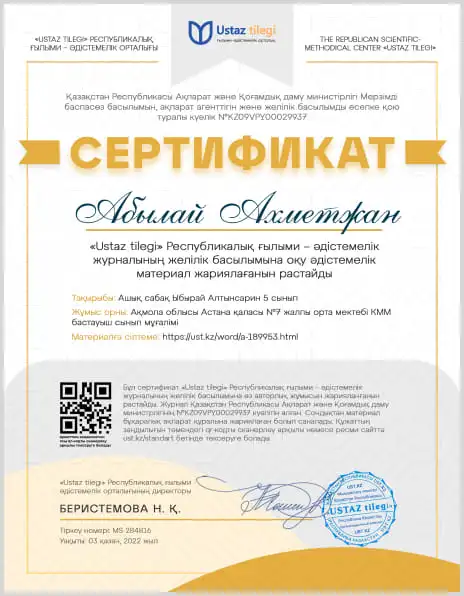
Сіз үшін 400 000 ұстаздардың еңбегі мен тәжірибесін біріктіріп, ең үлкен материалдар базасын жасадық. Төменде пәніңізді белгілеп, керек материалды алып сабағыңызға қолдана аласыз
 Дайын ҚМЖ. Барлық пәндерден 2022-2023 оқу жылына, жаңа бұйрыққа сай жасалған
Дайын ҚМЖ. Барлық пәндерден 2022-2023 оқу жылына, жаңа бұйрыққа сай жасалған
